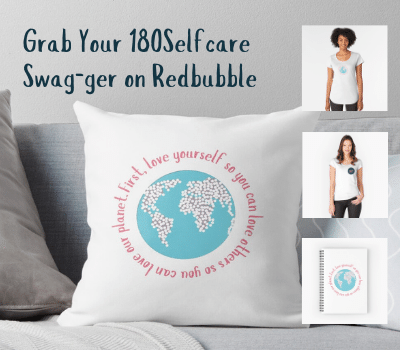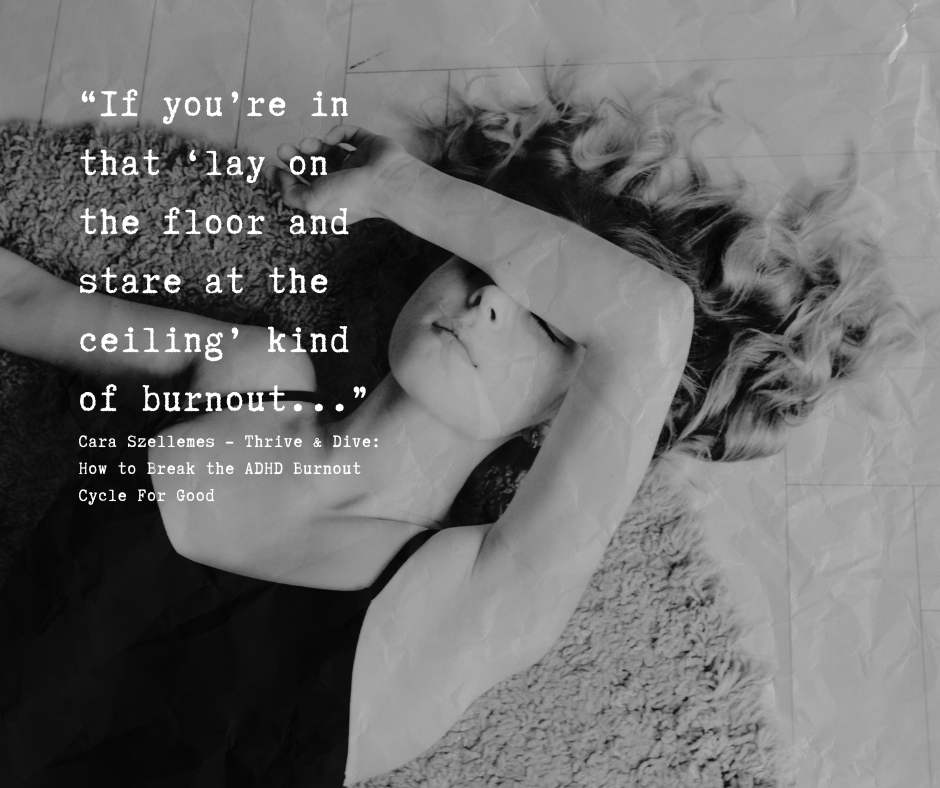
I’ve been thinking about how I can offer more through 180Selfcare™️ lately and while I’ve been pulled towards the idea of life coaching, and the Facebook ads for various coaching programs are plentiful (are they reading my mind?), something about it has me hesitating.
180Selfcare™️ was built to empower people to practice radical self-care with the tools and resources they already have at hand, both internally and externally. It’s a simple method that anyone, anywhere can practice but sometimes we could all use a little support. And the research backs this up. But my thoughts are, it’s not always coaching we need.
Safety and Company are the Keys
In their book, Our Polyvagal World, Stephen and Seth Porges highlight that one of the key elements to trauma recovery, and making significant mindset shifts in our lives is not coaching but company. You just need a safe space to be vulnerable and to increase your capacity to work through life’s challenges, habits that don’t serve you and to shift your mindset when your brain keeps you in survival mode. So what’s the best way to achieve this?
A good life coach will definitely create that space and I’ve engaged coaches myself many times with great outcomes. There’s a time and place for coaching but what sits with me is sometimes we don’t just need an expert showing us the way. Sometimes we actually just need on-call emotional and practical support. But I’ll get to that in a minute.
The Problem with the Personal Development Industry
Life coaching is awesome as a personal development tool but the reality is it is aimed at people with lots of disposable income, and for good reason. Most life coaches I know charge a minimum of $2000 for a handful of sessions. It’s not that they shouldn’t charge that much or more for their expertise. They absolutely should. Coaches can be incredibly valuable. It’s just that this model of care serves the needs of the privileged, not the underserved.
Coaches need to charge higher rates for personalised programs to ensure they don’t burn out themselves. That’s fair. But it’s not just life coaches that are aimed at those with disposable income. Most programs I’ve engaged with cost hundreds if not thousands. When it comes to personal development, it’s not a level playing field, and I’d like to change that.
180Selfcare™️ was created out of my own experience but designed so that anyone, anywhere can empower themselves through radical self-care. My view is that supporting equity in access to self-empowerment requires a different model.
Introducing the Life Doula

I want to introduce to you (and the world) the concept of the life doula. We have birth doulas (I was one for several years) and now, death or end-of-life doulas but google “life doula,” it is nowhere to be found… until now, of course.
I see a gap and it’s one I intend to fill through 180Selfcare™️. I’ve created a methodology that works to empower people to flip their life experience and it’s the same methodology I use myself, but it doesn’t require an “expert” coach to keep you on track. It simply requires you to practice and feel supported and empowered while you do so. What’s needed for that is a diverse community, not a single North Star, but a constellation.
And it’s that constellation that provides the core support for practicing radical self-care. A diverse community is a happy feedback loop and one I’m working hard to foster with 180Selfcare™️. I finally set up a Facebook community and we now have a growing and dedicated group of core members. You can join us here: https://www.facebook.com/groups/180selfcare.
However, there will always be people who want more or need extra support. And I’ve been pondering, “what now?” How can I scale my offering so that A. I don’t burn out (that would be ironic given it’s all about self-care and overcoming burnout) and B. I can sustain my work on this to expand its impact so I can achieve my mission of empowering 1 million people to overcome depression and anxiety through the power of radical self-care.
What I’ve landed on is creating the first ever Life Doula Training Program™️ and Life Doula Network™️. And the perfect thing about it is that a variety of holistic human-centred providers including counsellors, social workers, life coaches, birth and end-of-life doulas can all benefit from and engage with this role as well.
What is a Life Doula?
What I love about doulas is they provide informational, emotional and physical support to their clients. The doula brings knowledge and expertise to the table, for sure, but the client is considered and empowered to be the expert on their own life. The life doula’s role is primarily to empower and support the client.
So, while I’m evolving a definition and a program that will potentially support millions of people from all walks of life, I guess you could say a life doula is part companion, part coach, part accountability buddy, part personal assistant or support worker.
An important distinction to make is that like with birth and end-of-life doulas, a life doula role is non-therapeutic. A life doula is not medically trained or a professional counsellor or social worker (although those who do have these qualifications can certainly provide services as a life doula). A doula would be the referral bridge to professional therapeutic services like doctors, psychologists, social workers etc.. Defining the scope of practice for clients will be very important for those who provide support as life doulas.
If I can think of an example where someone might engage a life doula, what comes to mind is after a breakup. Trying to reorganise your life while dealing with the emotional turmoil of a break-up can be incredibly hard. I know this through personal experience.
Yes, our friends are an incredible resource but many people don’t have friends and family close by or strong social support networks locally. Also, our friends can often struggle with being there for us and being there for themselves during the intense periods of our lives. It’s not their fault. We’re all just human beings doing our best. It’s a matter of capacity.
A life doula who is trained to listen for what you need, trained to support you in making informed decisions and who is on-call and able to assist with doing some of the groundwork you don’t have the capacity to do in that very difficult time can be a lifesaver. They can help you research storage options, apartments, family lawyers, organise meals, cleaners, actively listen, suggest support services you can access, counsellors etc..
What I love about this model is that anyone could do the training and even if they just want to better support their family and friends, rather than practice as a paid life doula, the program will build their capacity to do that so they don’t burn out.
So, that’s just one example, but I can imagine many purposes for drawing upon a life doula. How about you? And imagine if a life doula was something you could gift to a friend in need. How cool would that be?
Drawing From My Birth Doula Experience

I was a birth doula for a few years after spending 8 years advocating for maternity reform in my country and heading up the leading maternity consumer organisation in Australia (now called Maternity Choices Australia). I was burned out by organisational politics, and wanted to do something more hands-on to support women, so I trained as a birth doula and started attending births, mostly with women who’d experienced trauma in birth previously. I was present for the births of several beautiful beings who are now teens and young adults. I got to witness the miracle of birth with all its messiness and complication and I got to focus on the woman and her partner and be fully present for them throughout this life-changing event.
After the birth, I’d help women with breastfeeding and make them nutritious meals. I loved this hands-on work, but after I separated from my husband, 2 am calls to attend births were not realistic. So I stopped.
As a birth doula, you operate on the basis that the woman is the expert in her own life. You are there to empower her and physically and emotionally support her as she gives birth and establishes breastfeeding. It’s a hands-on role, and yes, you have expertise in supporting women to give birth naturally but you honour the woman as the expert on her own body. She leads, you support. However, she also looks to you for guidance. You are just clear that she is not obliged to listen to you and that the choice is always hers to make.
As a doula, creating a safe space to labour and birth was a high priority. I can imagine a life doula would do much the same but in a different context. As a birth doula, I would support a couple to troubleshoot by using frameworks for informed decision-making. I would never have all the answers but I would help the couple find the answers they needed to make the choices that were right for them.
I often wondered if I was a “good” doula. Being neurodiverse, I struggled with anxiety myself and wondered if the women picked up on this. But recently I heard from a client who reached out to tell me how much she appreciated me being at the birth of her son, which was 16 years ago!
It made my day! It’s fulfilling and empowering work and I’d love to be able to extend the concepts to empowering people in everyday life and with the events that happen throughout their lives, whether it be supporting them to make decisions about where to buy a house or how to maneuver through a break-up or even a family reunion. Family reunions can be full-on.
Looking at the broader social context for this kind of support, I can imagine non-profit life doulas serving people who need to escape domestic violence or find suitable housing. How invaluable would it be to have someone at your side doing the leg work and connecting you to support services like social workers and free domestic violence accommodation services?
So, now I’m wondering, how can I extend this magnificent training and experience to establish a new role, that of the life doula. What would that look like? I feel like this is something worth exploring. What could a life doula do for you? I like the term doula because it signifies someone who is with you, not someone who is before you. What do you think?






